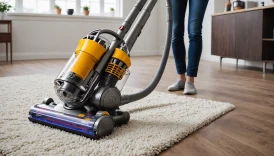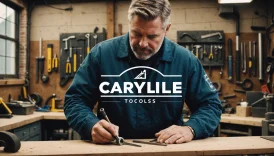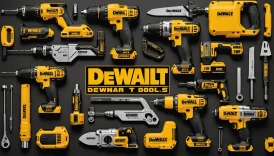Ryobi Tools: Who Makes Them and Where Are They Made?

Ryobi tools have become a staple in the toolboxes of both professionals and DIY enthusiasts, known for their reliability and affordability. Founded in Japan, Ryobi’s history dates back to 1943 when it first started producing printing equipment before venturing into power tools in the late 1960s. Today, Ryobi is owned by Techtronic Industries (TTI), a global leader in tool manufacturing that ensures high-quality standards across its products. As we explore the world of Ryobi tools, we will uncover the details of their manufacturing processes, the competitive landscape including a Ryobi vs Dewalt comparison, and what makes these tools a preferred choice for many. Join us as we delve into the fascinating history of Ryobi tools and discover whether they truly deliver value for your investment.
- Ryobi Tools: Who Makes Them and Where Are They Made?
- The Rich History of Ryobi Tools
- Who Makes Ryobi Tools and Where Are They Manufactured?
- Why Choose Ryobi Tools? Pros and Cons
- Comparing Ryobi Tools to Dewalt: Which is Better?
- Are Ryobi Tools Worth the Investment?
- Frequently Asked Questions about Ryobi Tools
- Conclusion: The Value of Ryobi Tools
- Frequently Asked Questions
- Who makes Ryobi tools?
- What is the history of Ryobi tools?
- Where are Ryobi tools manufactured?
- How do Ryobi tools compare to Dewalt?
- What are the pros and cons of using Ryobi tools?
- Are Ryobi tools worth buying?
- What type of power tools does Ryobi offer?
- Where can I purchase Ryobi tools?
- How long is the warranty for Ryobi tools?
- What are some famous Ryobi tools?
- Summary
Renowned for its extensive range of power tools, Ryobi has carved out a significant niche in the home improvement and professional markets. This brand, synonymous with quality and innovation, has a rich legacy that spans several decades, beginning as a small manufacturing endeavor in Japan and evolving into a subsidiary of the prominent Techtronic Industries (TTI). The tools produced under the Ryobi name are designed to cater to a variety of users, from casual DIYers to seasoned professionals, offering a blend of performance and affordability. In this discussion, we will provide an in-depth look at Ryobi’s manufacturing practices, examine the advantages and disadvantages of their products, and evaluate how they stack up against competitors like Dewalt in terms of features and user satisfaction. Prepare to explore the ins and outs of Ryobi tools and uncover essential insights that will guide your purchasing decisions.
The Rich History of Ryobi Tools
Ryobi Tools has a fascinating history that dates back to 1943 when Yutaka Urakami founded the brand in Japan. Initially, the company focused on manufacturing printing equipment and various metal products. It wasn’t until 1968 that Ryobi ventured into the power tools market, producing its first portable drill. Over the decades, the brand has expanded its product line significantly, becoming a trusted name among both professionals and DIY enthusiasts. With over 70 years of experience, Ryobi has consistently prioritized innovation, making it a staple in the power tool industry.
As Ryobi evolved, it established itself as a go-to brand for reliable and high-quality tools. The company’s commitment to continuous improvement has allowed it to adapt to market demands and technological advancements, keeping it relevant in an ever-competitive landscape. Today, Ryobi is recognized not just in Japan but globally, providing a wide array of power tools and outdoor equipment that cater to various needs.
Who Makes Ryobi Tools and Where Are They Manufactured?
Ryobi tools are manufactured by Techtronic Industries Company Limited (TTI), which acquired the brand in the late 1990s. TTI is a major player in the power tool industry, with a strong portfolio that includes other well-known brands such as Milwaukee and AEG. Founded in 1985 and listed on the Hong Kong Stock Exchange since 1990, TTI has grown to become a multinational corporation with a focus on innovation and quality. With a workforce of over 44,000 employees and record annual sales reaching US$13.3 billion in 2022, TTI has positioned itself as a leader in the market.
The manufacturing of Ryobi tools primarily occurs in various locations worldwide, including China, where the majority of production takes place. This outsourcing allows TTI to maintain competitive pricing while ensuring that all Ryobi tools uphold strict quality standards. The global manufacturing strategy also enables Ryobi to meet the diverse needs of its customers, ensuring that their tools are accessible and affordable.
Why Choose Ryobi Tools? Pros and Cons
When considering whether to invest in Ryobi tools, it’s essential to evaluate their pros and cons. One of the most significant advantages of Ryobi tools is their affordability. They provide a wide range of high-quality tools at competitive prices, making them an excellent choice for DIY enthusiasts and homeowners looking for reliable equipment without breaking the bank. Furthermore, Ryobi’s ONE+ system allows users to interchange batteries across various tools, enhancing convenience and reducing costs.
On the downside, some users report that Ryobi tools may not be as durable as higher-end brands like DeWalt. Additionally, certain models may have limited battery life compared to premium options, necessitating more frequent recharges during extensive projects. While Ryobi offers a solid entry point for casual users, professionals may find themselves needing more robust solutions for heavy-duty tasks.
Comparing Ryobi Tools to Dewalt: Which is Better?
In the ongoing debate between Ryobi and Dewalt, many factors come into play. Dewalt is often regarded as the brand of choice for professionals due to its superior build quality and durability. Users frequently highlight that Dewalt tools are constructed with more robust materials capable of withstanding heavy use, making them ideal for construction sites or demanding environments. This reputation for reliability has solidified Dewalt’s status among tradespeople and industry experts.
Conversely, Ryobi excels in affordability, catering to budget-conscious consumers who still seek reliable tools for home improvement projects. While Ryobi may not match Dewalt’s durability, it offers an impressive range of tools that are suitable for casual use. When making a choice, potential buyers should weigh their specific needs and budget constraints, as both brands offer unique strengths and weaknesses.
Are Ryobi Tools Worth the Investment?
For many consumers, Ryobi tools represent a compelling investment. They provide a balance of quality and affordability, making them accessible to a wide range of users, from weekend warriors to DIY hobbyists. The extensive variety of tools available ensures that there is something for everyone, whether you’re tackling a simple home repair or a more complex project. Additionally, Ryobi’s commitment to innovation means that they continuously improve their product line, staying current with industry trends.
However, if you’re a professional contractor or require tools for heavy-duty applications, you may want to consider whether Ryobi’s offerings meet your performance expectations. While they are excellent for general use, some users find that investing in brands like Dewalt may yield better results in terms of durability and long-term performance. Ultimately, whether Ryobi tools are worth buying depends on your specific needs, usage frequency, and budget.
Frequently Asked Questions about Ryobi Tools
Many consumers have questions regarding Ryobi tools, particularly about their manufacturing origins and warranty specifics. Ryobi tools are primarily produced in China, which allows the brand to keep costs low while maintaining quality standards. This global manufacturing strategy has made Ryobi a popular choice among consumers looking for reliable tools without a hefty price tag.
Another common inquiry revolves around the warranty coverage for Ryobi products. Most Ryobi tools come with a three-year warranty for outdoor power equipment, which covers defects in materials and workmanship. Understanding the warranty details is crucial for consumers to ensure they are protected against any potential issues with their tools.
Conclusion: The Value of Ryobi Tools
In conclusion, Ryobi has established itself as a reputable brand in the power tool industry, offering a solid combination of quality and affordability. With a rich history dating back to 1943, they have continuously evolved to meet the needs of their users. Despite some drawbacks, such as limited warranties and variable battery performance, Ryobi tools remain a popular choice among DIY enthusiasts and casual users.
Ultimately, the decision to purchase Ryobi tools should be based on individual needs and preferences. For those looking for reliable tools for home improvement projects without a significant financial investment, Ryobi is an excellent option. By understanding the brand’s strengths and weaknesses, consumers can make informed choices that best suit their projects.
Frequently Asked Questions
Who makes Ryobi tools?
Ryobi tools are made by Techtronic Industries (TTI), a Hong Kong-based company that specializes in power tools and outdoor equipment. TTI owns several well-known brands, including Ryobi, Milwaukee, and AEG.
What is the history of Ryobi tools?
Ryobi tools originated in Japan in 1943, initially producing printing equipment. In 1968, the company ventured into power tool manufacturing and has since grown to become a leading global brand known for its innovative and reliable tools.
Where are Ryobi tools manufactured?
Ryobi tools are manufactured in multiple locations around the world, including China and other Asian countries. Despite the varied manufacturing locations, Ryobi maintains consistent quality standards across all products.
How do Ryobi tools compare to Dewalt?
When comparing Ryobi tools to Dewalt, Ryobi is generally more affordable and suitable for DIY projects, while Dewalt is known for its higher quality and durability, making it a better choice for professional use.
What are the pros and cons of using Ryobi tools?
The pros of Ryobi tools include affordability, a wide range of products, and good quality for DIY enthusiasts. However, cons may include limited warranties, varying battery life, and some plastic components that may affect durability.
Are Ryobi tools worth buying?
Yes, Ryobi tools are often considered worth buying for DIY projects and home improvement tasks due to their affordability and variety. However, for heavy-duty professional use, other brands like Dewalt may be more suitable.
What type of power tools does Ryobi offer?
Ryobi offers a broad range of power tools, including drills, saws, sanders, nailers, and outdoor power equipment, catering to both professionals and DIY enthusiasts.
Where can I purchase Ryobi tools?
Ryobi tools are widely available at home improvement stores such as Home Depot and Lowe’s, as well as online platforms like Amazon, making them accessible for all customers.
How long is the warranty for Ryobi tools?
Ryobi tools come with a warranty period of three years for most of their outdoor power equipment, providing assurance of quality and reliability.
What are some famous Ryobi tools?
Some of the most recognized Ryobi tools include the Ryobi ONE+ 18V Cordless Drill, 18V ONE+ Brushless Impact Driver, 40V Lithium-Ion Cordless String Trimmer, and 10-inch Compound Miter Saw, which are popular among users for their performance and versatility.
| Key Points | Details |
|---|---|
| Brand Name | Ryobi is a well-known brand of power tools. |
| Ownership | Ryobi is owned by Techtronic Industries (TTI), a multinational company based in Hong Kong. |
| History | Founded in 1943 in Japan, initially manufacturing printing equipment before entering power tools in 1968. |
| Manufacturing Locations | Ryobi tools are manufactured in various countries, primarily in China. |
| Product Range | Ryobi offers a variety of tools including cordless drills, impact drivers, string trimmers, and saws. |
| Pros | Affordable, good quality for DIY projects, wide range of tools. |
| Cons | Limited warranty, variable battery life, some tools have plastic components. |
| Comparison with Dewalt | Ryobi tools are generally more affordable, while Dewalt offers higher quality and better battery life. |
| Conclusion | Ryobi tools are a reliable option for DIY enthusiasts and are worth considering for those on a budget. |
Summary
Ryobi tools are a popular choice among both professionals and DIY enthusiasts, known for their affordability and decent quality. Established in 1943, Ryobi has evolved from manufacturing printing equipment to becoming a leading name in power tools, owned by Techtronic Industries (TTI). Despite some drawbacks like limited warranties and battery life, Ryobi tools provide a solid range for various projects, making them an excellent option for those seeking reliable yet budget-friendly solutions.





